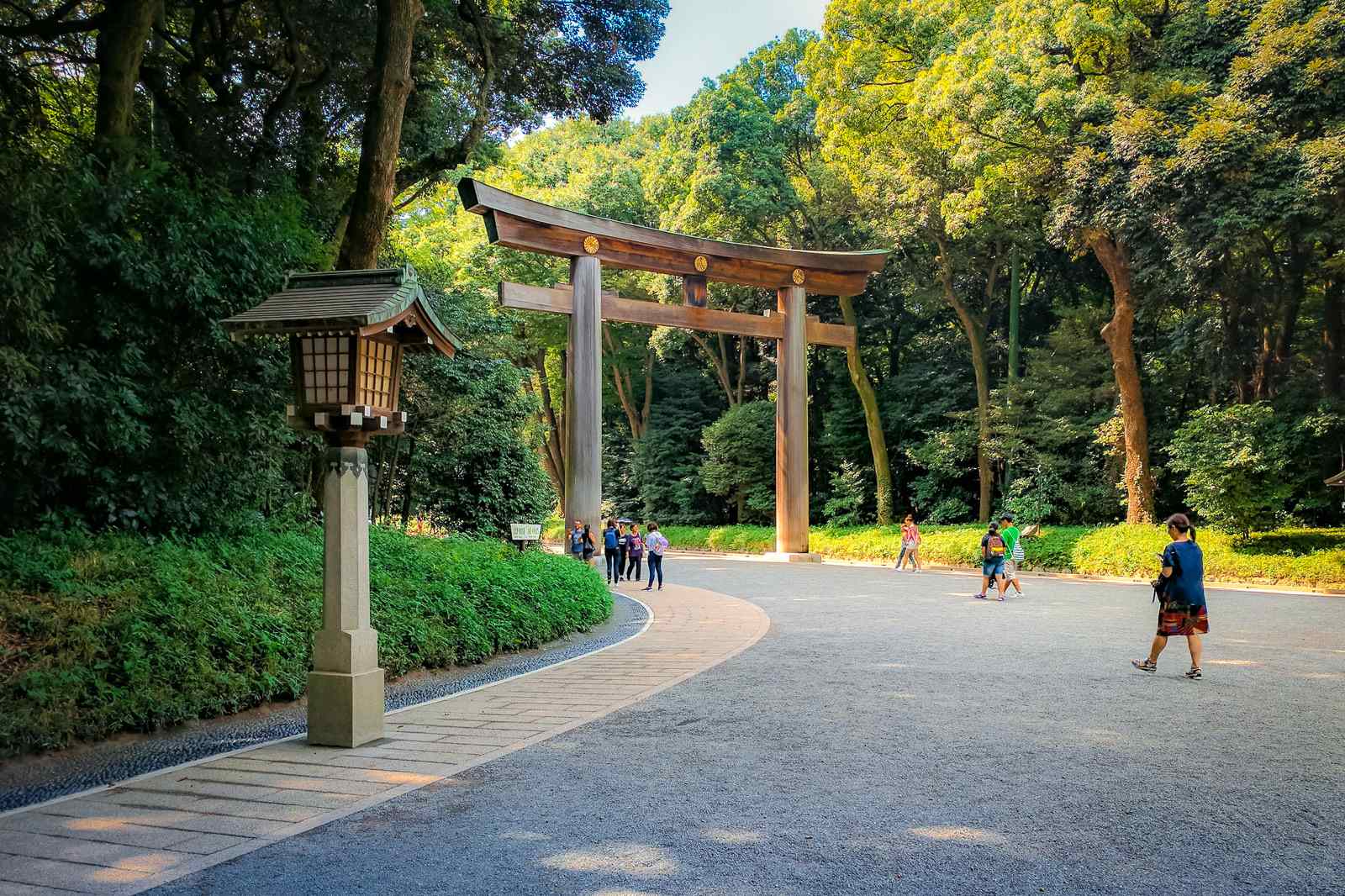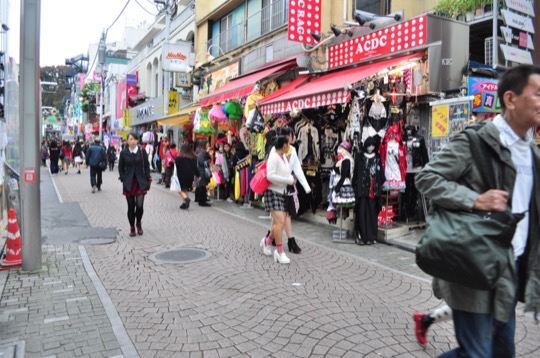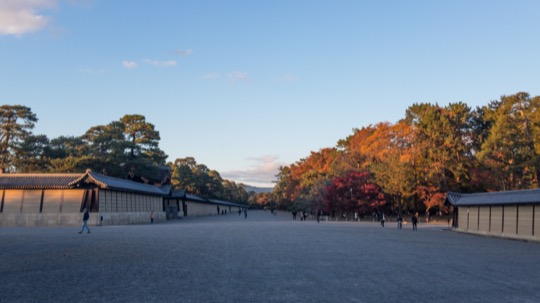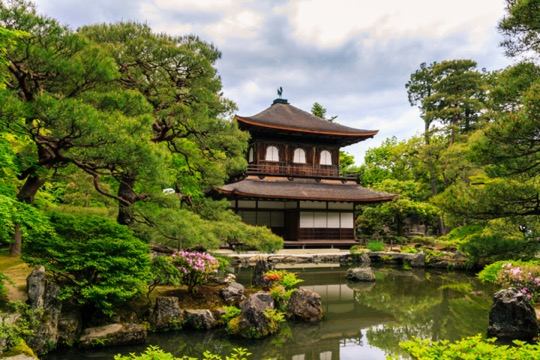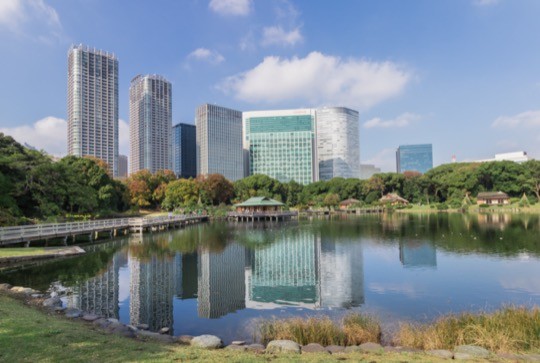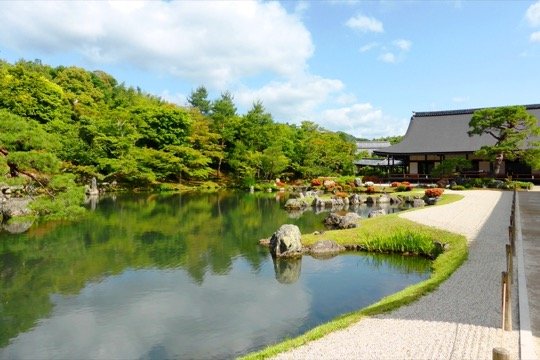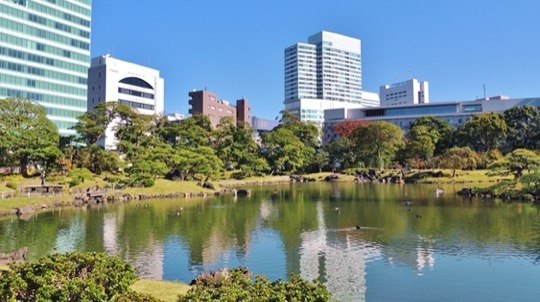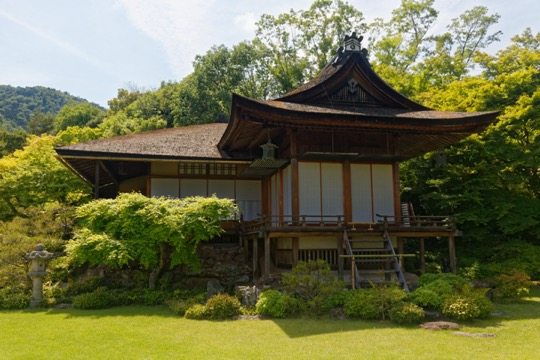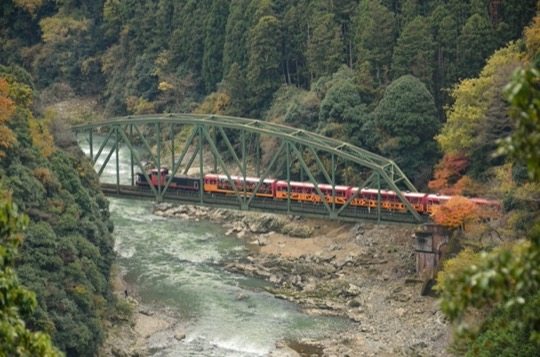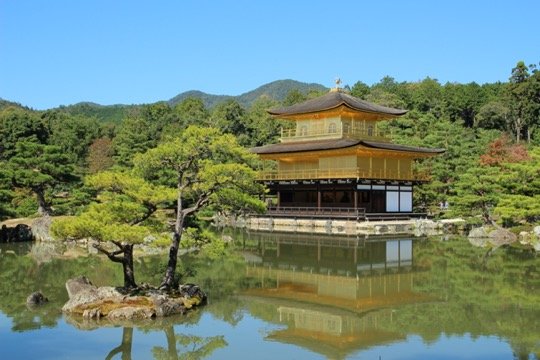Meiji Jingu Shrine offers a tranquil sanctuary in the bustling heart of Tokyo, honoring the deified spirits of Emperor Meiji and Empress Shoken. This Shinto shrine, embraced by a forest, marks Japan’s passage into the modern age during Emperor Meiji’s reign. It is a cultural site where visitors can engage in traditional rituals and enjoy the serene environment.
On This Page
About Meiji Jingu Shrine
Established in 1921, Meiji Jingu Shrine pays tribute to Emperor Meiji and his consort, Empress Shoken, central figures of the Meiji Restoration. The shrine’s foundation after Emperor Meiji’s death reflects the national esteem for his contribution to Japan’s modernization. The surrounding 70-hectare forest, with 120,000 trees donated from all over Japan, provides a quiet haven in Tokyo.
The shrine grounds, encompassing the Naien and Gaien, house the main sanctuary, treasure house, and museum with imperial era artefacts. A towering torii gate welcomes visitors into the sacred space. Meiji Jingu is a place of spiritual importance, frequented for prayers, purification rituals, and traditional events like Shichi-Go-San.
The shrine was rebuilt in 1958 after its destruction in 1945, preserving its historical and cultural significance. The reconstruction, overseen by architect Iwao Komiyama, included the addition of a copper roof to the main sanctuary, and the complex now features buildings recognized as important cultural properties.
Annually, Meiji Jingu celebrates festivals, such as the Autumn Grand Festival. The Hatsumode event on New Year’s Day draws a large number of participants, positioning the shrine as a prominent location for the year’s first visit. The Meiji Jingu International Institute for Shinto Studies and the Shiseikan Dojo exemplify the shrine’s dedication to Shinto culture and martial arts education.
Visitors to Meiji Jingu should not miss the Meiji Jingu Museum for insights into the Meiji era’s court culture. The Inner Garden is a highlight, particularly in June with its iris bloom, featuring Kiyomasa’s Well, revered by the emperor. The sight of traditional Shinto weddings on Sundays adds to the cultural ambiance.
Getting There the easiest way to reach Meiji Jingu Shrine
JR Harajuku JR Yamanote Line
Sangūbashi Odakyū Odawara Line
Yoyogi Toei Oedo Line + 1 more
Omote-sandō Ginza Line + 2 more
Shinjuku-sanchōme Marunouchi Line + 2 more
Shibuya Hanzomon Line + 5 more
Around Meiji Jingu Shrine
Official Links
Updated 7 Mar 2024 • Report an error
